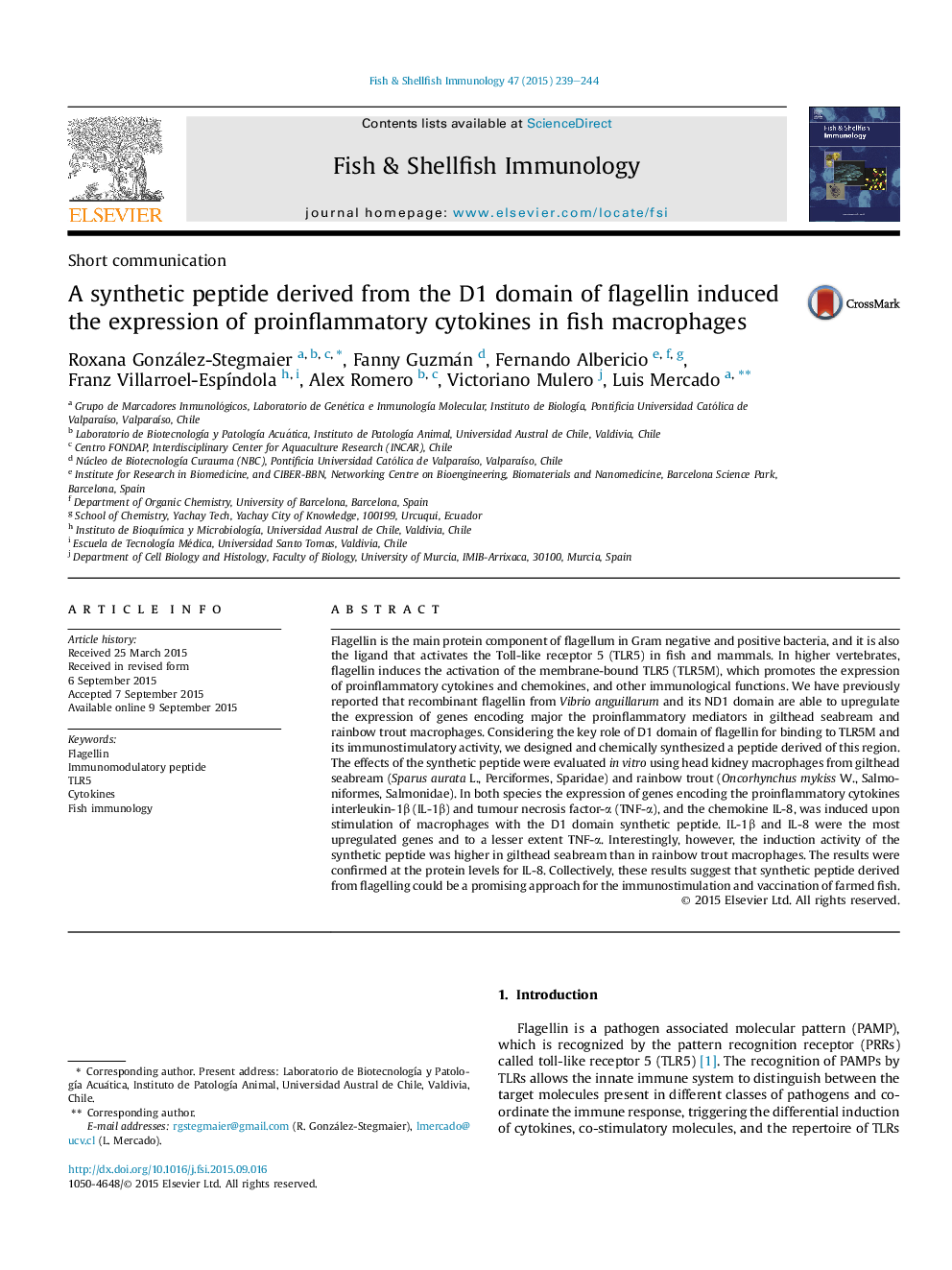| Article ID | Journal | Published Year | Pages | File Type |
|---|---|---|---|---|
| 2431135 | Fish & Shellfish Immunology | 2015 | 6 Pages |
•A synthetic peptide derived from the D1 domain of Vibrio anguillarum flagellin was designed and produced.•The synthetic peptide was able to induce in vitro the expression of proinflammatory genes in fish macrophages.•The macrophage activation by this peptide was demonstrated in both gilthead seabream and rainbow trout.
Flagellin is the main protein component of flagellum in Gram negative and positive bacteria, and it is also the ligand that activates the Toll-like receptor 5 (TLR5) in fish and mammals. In higher vertebrates, flagellin induces the activation of the membrane-bound TLR5 (TLR5M), which promotes the expression of proinflammatory cytokines and chemokines, and other immunological functions. We have previously reported that recombinant flagellin from Vibrio anguillarum and its ND1 domain are able to upregulate the expression of genes encoding major the proinflammatory mediators in gilthead seabream and rainbow trout macrophages. Considering the key role of D1 domain of flagellin for binding to TLR5M and its immunostimulatory activity, we designed and chemically synthesized a peptide derived of this region. The effects of the synthetic peptide were evaluated in vitro using head kidney macrophages from gilthead seabream (Sparus aurata L., Perciformes, Sparidae) and rainbow trout (Oncorhynchus mykiss W., Salmoniformes, Salmonidae). In both species the expression of genes encoding the proinflammatory cytokines interleukin-1β (IL-1β) and tumour necrosis factor-α (TNF-α), and the chemokine IL-8, was induced upon stimulation of macrophages with the D1 domain synthetic peptide. IL-1β and IL-8 were the most upregulated genes and to a lesser extent TNF-α. Interestingly, however, the induction activity of the synthetic peptide was higher in gilthead seabream than in rainbow trout macrophages. The results were confirmed at the protein levels for IL-8. Collectively, these results suggest that synthetic peptide derived from flagelling could be a promising approach for the immunostimulation and vaccination of farmed fish.
